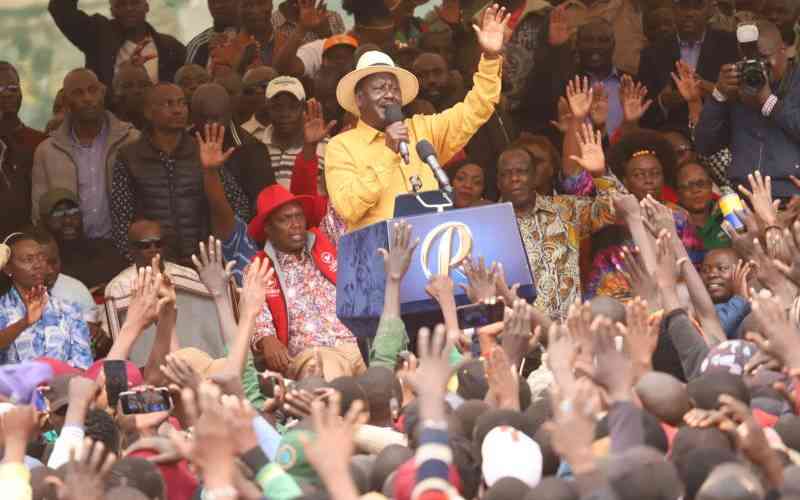×
The Standard e-Paper
Home To Bold Columnists

Raila Odinga is gearing up for a fresh round of political battle with President William Ruto set to peak on Friday with nationwide anti-government protests.
In the confrontation timed to coincide with a historic date of Kenya's agitation for second liberation in 1990, the Azimio la Umoja-One Kenya leader has announced a signature-collection drive against Ruto's administration.